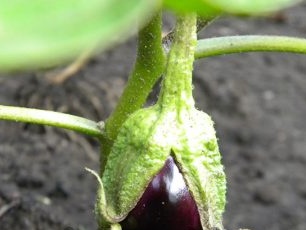 You planted eggplant seedlings in the ground, waited two weeks for the sprouts to take root and grow, and slowly begin to water the holes. But what's next? What is the proper cultivation of eggplant in the open ground? How to make the bushes not only grow, but also give you a generous crop of vegetables? To do this, you need to help the eggplants - properly water them, feed them, remove the extra leaves in time and conduct pinching.
You planted eggplant seedlings in the ground, waited two weeks for the sprouts to take root and grow, and slowly begin to water the holes. But what's next? What is the proper cultivation of eggplant in the open ground? How to make the bushes not only grow, but also give you a generous crop of vegetables? To do this, you need to help the eggplants - properly water them, feed them, remove the extra leaves in time and conduct pinching.
How to care for eggplant in the open ground?
Eggplanting in the garden
Most often, the word "herding" can be heard in conversations of summer residents about growing tomatoes. But this term also refers to eggplant, because they, along with tomatoes, refer to nightshade plants (which means they grow in a similar way). So what exactly is pinching? This is part of the care for vegetable bushes, consisting in the removal of processes - "parasites." They do not bring anything useful to the bush, but they draw out vitally important juices and nutrients. After removing the stepsons, the vegetable bush spends more energy on the growth of those leaves and branches that remained to grow, which means that it accelerates the flowering and appearance of the ovaries of the fruits themselves.
Stepson is an extra branch growing from the base of an existing leaf of an eggplant bush. It is very easy to notice, because it really looks “out of place”, as in this photo:
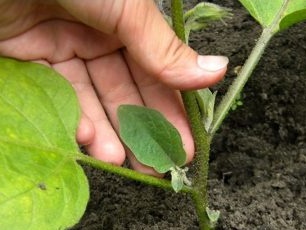
At the base of the stepson, it is enough to press a fingernail - and he will fall off by himself. Pasynkovka is a fairly simple "operation" that does not require a lot of time from you. But the result will be obvious: the bush will begin to grow faster and will soon delight you with the ovaries. You need to carry out stepsoning throughout the summer, because new stepsons from time to time can still appear on all eggplant bushes.
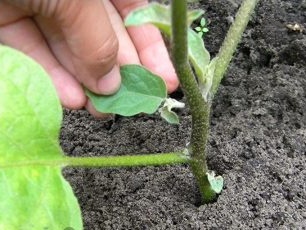
Proper watering of eggplant
Stubbornness is very common among eggplants. Except for jokes: some bushes are called “stubborn”! But this applies only to those eggplant bushes that are in no hurry to grow tall: at some stage, their development simply stops, and the bushes remain low until the end of the season. The fact is that “stubborn people” are the result of improper watering. This "deviation" occurs when the eggplant holes are poured with water - watered too often and too abundantly. Therefore, it is worth remembering: eggplants like to drink water, but they perceive an excess of moisture "in bayonets."
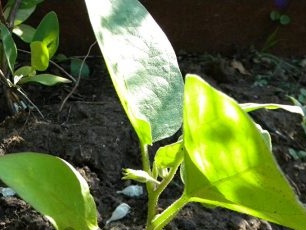
How to water eggplant? Throughout the summer, eggplant should be watered, completely filling their holes with water. But doing this too often is not worth it - one watering in 2 days is enough (if you have black soil) or one watering on a hot day (if the land on the bed is sandy loam). Do not water the eggplant twice a day, even if it is a very dry period.
Topping up eggplant during outdoor cultivation
Top dressing is a useful “action”, thanks to which you can strengthen plants and accelerate their development. Eggplants, like tomatoes and other nightshade crops, love organic top dressing - a mixture of water with fermented organics. This includes various herbs (weeds), chicken droppings, mullein and manure.
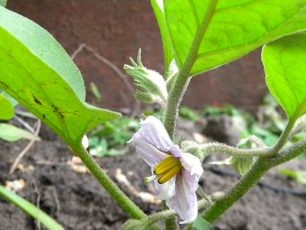
You can add such infusions to the eggplant holes every two weeks in a half-liter jar:
- 1 kg of mullein + 30 l of water;
- 1 kg of chicken droppings + 30 l of water;
- 0.5 kg mullein + 0.5 kg litter + 30 l of water;
- 3 kg of nettle and weed + 30 l of water.
But at the same time, the liquid in the container must be suitable - the organics must ferment and let foam bubbles on the surface of the water.Both healthy bushes and those whose leaves turned yellow for no apparent reason need such nutrition.
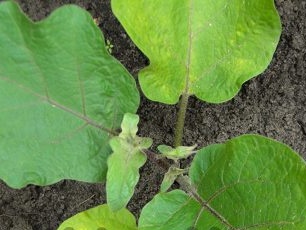
How to speed up the maturation of eggplant?
In addition to top dressing, you can speed up the ripening of eggplant in one simple way. If it’s already autumn in the yard and the vegetables are lingering with “weight gain”, just break off all the extra leaves from the bush! First, you need to break off all the lower leaves (all the same, they usually turn yellow first and “deteriorate”) - it is better if the bush energy is used to ripen the fruits. Secondly, it is worth breaking off all the leaves that cover the fruits of the sun's rays. The more sun will fall on the unripe fruits, the faster they will grow and turn dark blue!
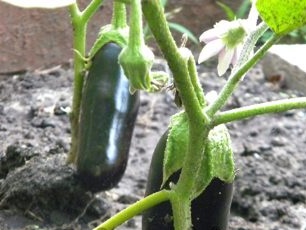
Now you know that it is very simple to take care of eggplant in the garden in order to get a good harvest, and you don’t need a lot of money or purchased “chemistry” for this. We wish you obedient vegetable bushes and good summer season results!
Last time, we sorted out the subtleties growing eggplant in a polycarbonate greenhouse.

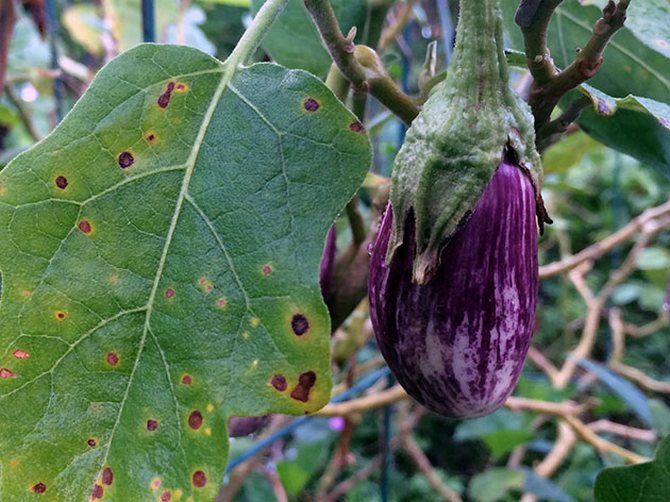
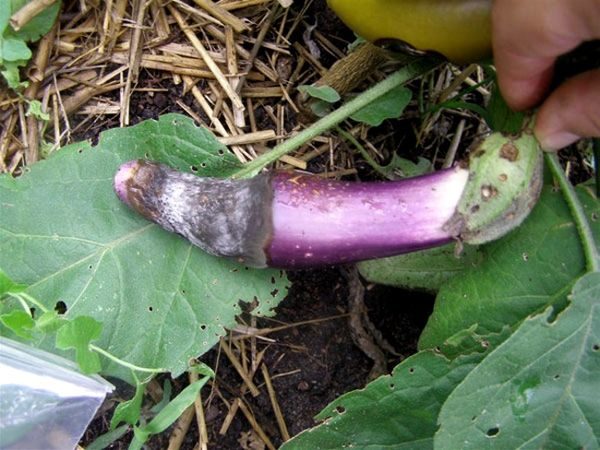
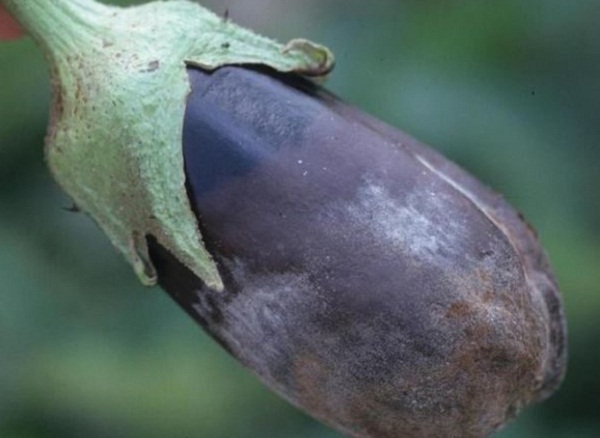
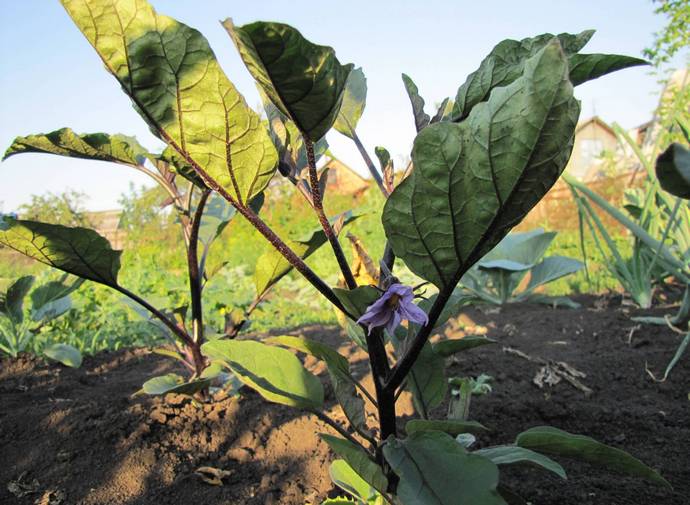 Eggplant have a empty flower? Save together with simple methods
Eggplant have a empty flower? Save together with simple methods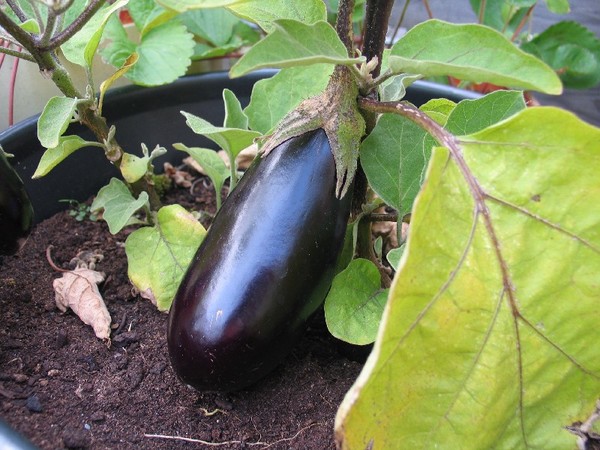 Why and what to do if the leaves turn yellow and wilt in the eggplant
Why and what to do if the leaves turn yellow and wilt in the eggplant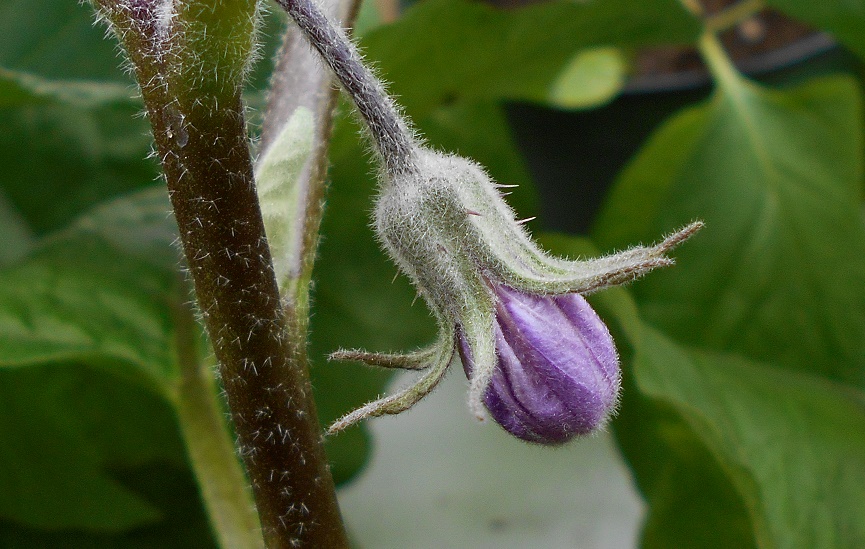 How to help eggplants to prevent flowers falling in the greenhouse?
How to help eggplants to prevent flowers falling in the greenhouse?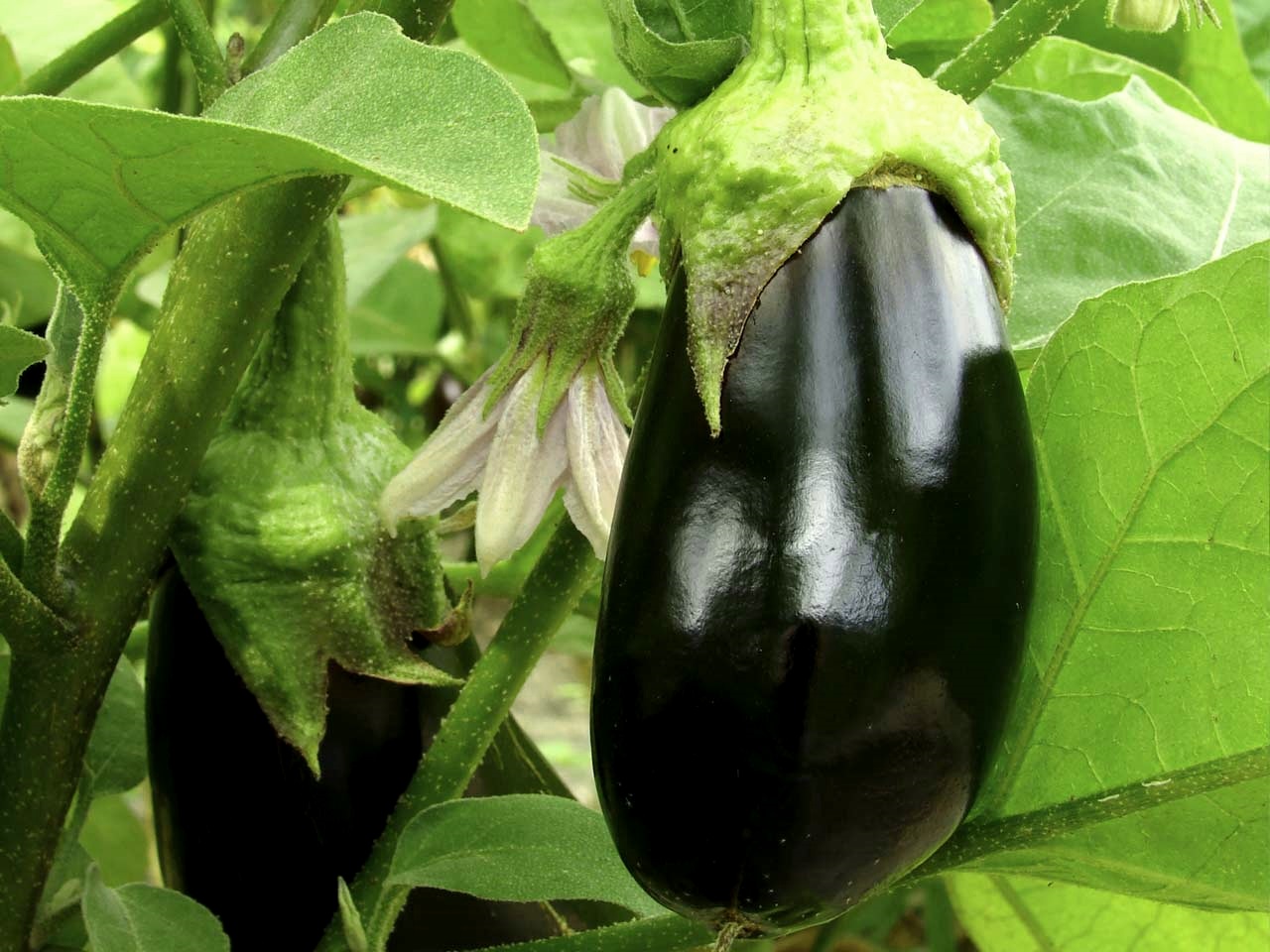 What to do to get a good eggplant crop in a greenhouse
What to do to get a good eggplant crop in a greenhouse